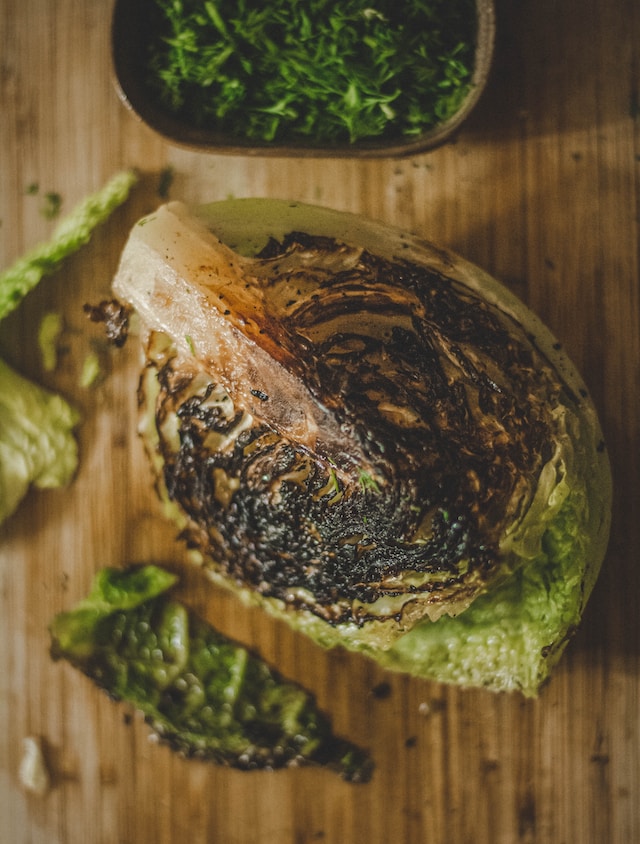
Stepping away from the realm of tradition, the vegan diet is a powerful choice for those seeking a sustainable and health-conscious lifestyle. By abstaining from any form of animal products, vegans not only embrace an ethical stance, but also set foot on a transformative journey towards personal well-being and environmental harmony.
Diving into the intricacies of the vegan diet, one could argue that it has transcended the boundaries of mere nutritional preference. It has unfurled its roots in the soils of conscience, nurtured by a growing awareness of the detrimental effects of animal farming on the planet. This guiding principle has become the cornerstone of this ever-expanding movement.
Types of Vegan Diets
Embracing the vegan diet opens up a world of culinary possibilities, where creativity can flourish alongside a commitment to compassionate living. As the movement gains momentum, different types of vegan diets have emerged to cater to a variety of preferences and goals. From raw vegans to high-carb vegans, each variation offers its own unique approach to this plant-based lifestyle.
Raw Vegan Diet
The raw vegan diet takes the concept of veganism to a whole new level by advocating the consumption of uncooked and unprocessed plant-based foods. This diet emphasizes the consumption of fruits, vegetables, nuts, and seeds in their most natural state. Raw vegans believe that cooking destroys essential enzymes and nutrients, and that consuming raw plant foods provides optimal health benefits.
Whole Food Vegan Diet
The whole food vegan diet focuses on consuming whole, unprocessed plant foods that are close to their natural state. This means avoiding refined sugars, flours, and oils, and instead opting for nutrient-dense and fiber-rich foods. By prioritizing whole grains, legumes, fruits, vegetables, nuts, and seeds, adherents of this diet can enjoy a colorful and diverse range of flavors while nourishing their bodies with essential nutrients.
High-Carb Low-Fat Vegan Diet
The high-carb low-fat vegan diet, popularized by athletes and fitness enthusiasts, emphasizes the consumption of plant-based carbohydrates while limiting the intake of fats. This diet is centered around starchy foods such as potatoes, rice, pasta, and whole grains, which provide a sustainable source of energy for physical activity. By minimizing fat intake, followers of this diet believe they can achieve optimal athletic performance and maintain a lean physique.
Raw Till 4 Vegan Diet
The raw till 4 vegan diet combines the principles of raw veganism with the practicality of incorporating cooked foods as the day progresses.

This diet encourages the consumption of raw, unprocessed plant foods until the evening meal, where a cooked vegan meal is allowed. The aim is to strike a balance between the healing benefits of raw foods and the comfort and satiety that cooked foods can provide.
Health Benefits of a Vegan Diet
The vegan diet has gained traction not only for its positive impact on the environment but also for its potential health benefits. By eliminating animal products and focusing on plant-based foods, individuals can experience various improvements in their overall well-being.
Reduced Risk of Chronic Diseases: Numerous studies have shown that adopting a vegan diet can lower the risk of chronic diseases, such as heart disease, stroke, and certain types of cancers. The high intake of fruits, vegetables, whole grains, and legumes provides essential nutrients, fiber, and antioxidants that help protect against these diseases.
Weight Management: A well-planned vegan diet can help with weight management due to its focus on nutrient-dense, low-calorie foods. The abundance of fruits, vegetables, and whole grains not only provides a feeling of fullness but also helps maintain a healthy weight.
Lowered Cholesterol Levels: Animal products are typically high in saturated fats and cholesterol, which can raise blood cholesterol levels and increase the risk of heart disease. Vegan diets, particularly those low in processed foods and high in plant-based fats like avocados and nuts, have been shown to lower total cholesterol and LDL (bad) cholesterol levels.

Improved Digestive Health: A vegan diet is naturally high in fiber, which promotes good digestion and helps prevent constipation. Fiber also supports a healthy gut microbiome, which plays a crucial role in overall digestive health and immune function.
Increased Energy and Vitality: Plant-based foods are rich in vitamins, minerals, and antioxidants, which provide essential nourishment for the body and support energy levels. The avoidance of processed foods and high intake of whole, unprocessed foods can also lead to increased energy and vitality.
Vegan Food Substitutes
Embracing a vegan diet doesn’t mean giving up on your favorite foods. With a plethora of vegan food substitutes available, you can still enjoy the flavors and textures you love while adhering to a compassionate and plant-based lifestyle. Whether you’re craving a cheesy pizza, a decadent chocolate dessert, or a hearty burger, there’s a vegan alternative to satisfy your taste buds.
Dairy Substitutes:
- Milk Alternatives: Swap cow’s milk for plant-based alternatives like almond, soy, oat, or coconut milk. These options are often fortified with essential vitamins and minerals, making them an excellent source of nutrients for a balanced vegan diet.
- Cheese Alternatives: Discover the wide array of vegan cheese options, ranging from nut-based varieties like cashew or almond cheese to soy-based options. These substitutes melt, stretch, and provide a deliciously cheesy experience, perfect for pizzas, grilled cheese sandwiches, and more.
- Yogurt Alternatives: Indulge in the creamy goodness of coconut milk, almond milk, or soy-based yogurts. These alternatives come in a variety of flavors and are just as versatile as their dairy counterparts, making them a great addition to smoothies, breakfast bowls, or as a snack on their own.
Meat Substitutes:
- Plant-Based Burgers: Sink your teeth into a juicy vegan burger made from ingredients like lentils, beans, mushrooms, or textured vegetable protein. These patties deliver the same deliciousness and mouthfeel as traditional burgers, without the animal products.
- Vegan Sausages: Enjoy breakfast classics or barbecue favorites with vegan sausages crafted from plant-based proteins, such as tofu, tempeh, or vital wheat gluten. They are seasoned to perfection, offering a satisfying alternative to traditional sausages.
- Meatless Crumbles: Substitute ground meat with plant-based alternatives made from soy, pea protein, or vegetables. These versatile crumbles can be used in chili, tacos, pasta sauces, and any recipe calling for minced meat.
Egg Substitutes:
- Flax or Chia Eggs: Mix ground flaxseeds or chia seeds with water to create a gel-like consistency that works as an excellent binding agent in place of eggs. These substitutes are perfect for baking and can add moisture and structure to your recipes.
- Applesauce or Mashed Banana: These fruit purees can be used as a replacement for eggs in recipes such as muffins, cakes, and pancakes. Not only do they add moisture to your baked goods, but they also contribute natural sweetness.
- Silken Tofu: Blend silken tofu until smooth, and use it as an egg substitute for creamy dishes like quiches, custards, or even scrambled “eggs.” Its neutral taste and smooth texture mimic the properties of eggs remarkably well.
Vegan Cooking Techniques and Tips
Cooking vegan meals can be a delightful and creative experience, allowing you to explore the limitless possibilities of plant-based ingredients. Whether you’re a seasoned chef or just starting your culinary journey, these vegan cooking techniques and tips will help you make the most out of your vegan diet.

Flavorful Fruits and Vegetables:
Roasting and grilling fruits and vegetables can enhance their natural flavors and give them a delicious caramelized finish. Toss your favorite veggies in a little olive oil, add some herbs and spices, and roast them in the oven for a crispy and flavorful side dish. Grilling vegetables on a barbecue can also create a smoky taste that adds depth to any meal.
Stir-frying is a quick and easy method to retain the vibrant colors and nutrients of vegetables. Heat up a wok or skillet with a splash of oil, toss in your favorite veggies, add some soy sauce or other vegan sauces, and stir-fry them until tender-crisp. Enjoy the crunchy textures and bold flavors in each bite.
Plant-Based Proteins:
Tempeh and tofu are versatile vegan protein sources that can be marinated, sautéed, baked, or grilled to create a variety of delicious dishes. Marinate them in a combination of soy sauce, tamari, or your favorite seasonings to infuse flavor and then cook them to your desired texture. Add them to stir-fries, salads, or sandwiches for a satisfying and protein-rich meal.
Legumes and pulses, such as lentils, chickpeas, and black beans, are excellent sources of vegan protein. Cook them in stews, curries, or soups to create hearty and satisfying meals. Alternatively, you can mash them up to make bean burgers or falafel, providing a plant-based alternative to meat patties.
Creamy and Indulgent:
Harnessing the rich and creamy texture of nuts, you can create plant-based alternatives to dairy creams and cheeses. Soak cashews, almonds, or macadamia nuts overnight and then blend them with water or plant milk until smooth and creamy. Use these nut-based creams in sauces, dressings, and desserts for a luscious and indulgent experience. Similarly, you can blend nuts with nutritional yeast, lemon juice, and spices to create flavorful vegan cheeses.
Coconut milk and cream are staple ingredients in vegan cooking, providing richness and texture to a variety of dishes. Use them in curries, soups, smoothies, and desserts to add a tropical twist. The high-fat content of coconut milk can also be whipped up into a delicious vegan whipped cream to top off your favorite desserts.
Challenges of a Vegan Diet
While the vegan diet offers numerous benefits, it also presents certain challenges that individuals may encounter along their plant-based journey. It’s important to acknowledge and address these challenges to ensure a successful transition and long-term adherence to a vegan lifestyle.
1. Social and Peer Pressure:
When embarking on a vegan diet, individuals may face skepticism or resistance from friends, family, and social circles who may not fully understand or support their choice. Attending social gatherings, dining out, or navigating traditional food environments can sometimes be challenging, as vegan options may be limited or unavailable. It’s important to communicate dietary preferences and requirements ahead of time to ensure accommodations can be made.
2. Nutrient Considerations:
As with any diet, proper nutrient intake is crucial for optimal health. Vegans need to pay attention to certain nutrients that are commonly found in animal products and may require additional planning to ensure adequate intake. Key nutrients to be mindful of include vitamin B12, omega-3 fatty acids, iron, zinc, calcium, and vitamin D. These can be obtained through fortified foods, supplements, or carefully planned dietary choices.

3. Meal Planning and Preparation:
To ensure a well-rounded and balanced vegan diet, meal planning and preparation become essential. This entails researching and experimenting with different ingredients, flavors, and cooking techniques. Planning ahead can help avoid relying on convenience or processed vegan foods, which may not always be the healthiest options. Preparing meals in advance, batch cooking, or utilizing meal delivery services can simplify the process.
4. Label Reading and Ingredient Awareness:
Adopting a vegan lifestyle often requires a heightened level of label reading and ingredient awareness. Animal-derived ingredients can be hidden in various packaged goods, sauces, and condiments. Familiarizing oneself with common non-vegan ingredients and understanding their alternate names can be instrumental in making informed choices. Seeking out vegan-certified or plant-based alternatives can alleviate this challenge.
5. Overcoming Cravings and Taste Adjustments:
For those who have grown up consuming animal products, adjusting to the taste and texture of vegan alternatives may take time and patience. Cravings for familiar flavors can arise during the transition. Experimenting with different spices, herbs, and marinades can help recreate favorite flavors. Exploring diverse plant-based cuisines and trying new recipes can also expand one’s palate and make the transition more enjoyable.
6. Traveling and Eating Out:
Traveling can present unique challenges for vegans, especially in areas where plant-based options may be limited or cultural dishes are primarily animal-based. Advanced planning and research can help identify vegan-friendly restaurants, markets, or local specialties. It is helpful to learn key phrases in the local language to communicate dietary restrictions and preferences to ensure a successful dining experience.
While the challenges of a vegan diet may seem daunting at first, with proper planning, education, and support, they can be navigated successfully. The rewards of embracing a compassionate lifestyle and contributing towards sustainable and ethical practices far outweigh the initial difficulties. By facing challenges head-on, individuals can find fulfillment, joy, and personal well-being in their journey towards a vegan lifestyle.